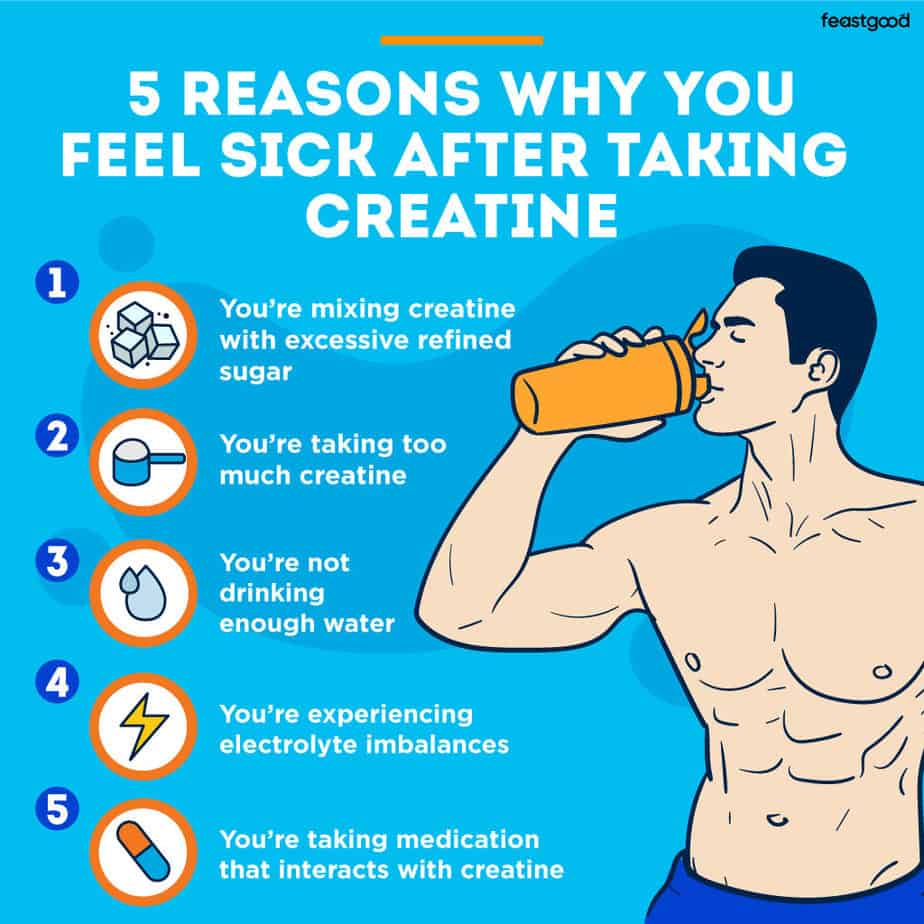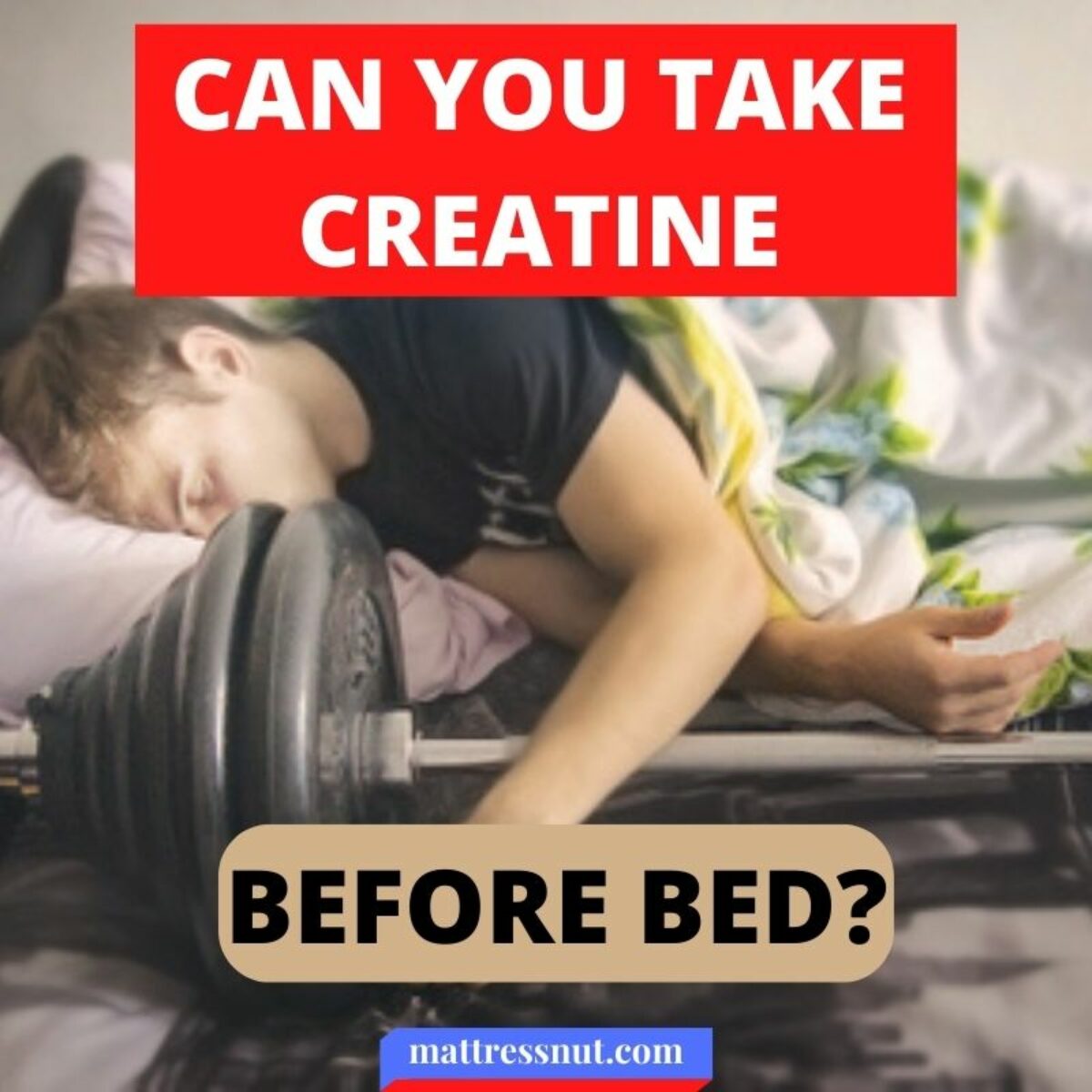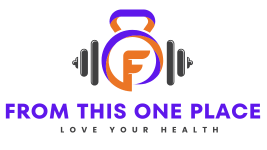Have you ever wondered if taking creatine makes you feel tired and sleepy? Well, you’re not alone. Many people have raised this question, and today we are going to explore the topic in detail. So, if you’re curious about whether creatine has any impact on your energy levels and sleep, keep reading because we have the answers for you!
Creatine supplements have become increasingly popular among athletes and fitness enthusiasts for their potential to enhance physical performance. However, some individuals have reported feeling tired and sleepy after taking creatine. While it may seem counterintuitive, studies have shown that this is not a direct effect of creatine itself.
In fact, creatine is actually known to provide energy by increasing the production of ATP, which is the primary source of energy for your muscles. So, if it’s not the creatine causing the fatigue, what could it be? Well, there are a few factors that might contribute to this feeling, including dehydration, improper dosing, or even placebo effect. If you want to learn more about the relationship between creatine and fatigue, read on and we’ll dive deeper into the topic later in this article.

What is Creatine?
Creatine is a naturally occurring compound found in small amounts in foods such as meat and fish. It is also produced by the body in the liver, kidneys, and pancreas. Creatine plays a crucial role in providing energy to cells, particularly muscle cells, during high-intensity exercise.
Definition of Creatine
Creatine is a nitrogenous organic acid that helps supply energy to cells in the body, especially muscle cells. It is synthesized from the amino acids glycine, arginine, and methionine. Creatine is stored in the muscles as creatine phosphate and is an important source of energy used during intense physical activity.
How does Creatine work?
When you engage in high-intensity exercise, your body requires a rapid supply of energy. Creatine phosphate is broken down into creatine and phosphate, releasing energy in the process. The energy is then used to resynthesize adenosine triphosphate (ATP), the molecule that provides energy for muscle contractions.
Roles of Creatine in the body
Apart from its role in providing energy, creatine has also been shown to have other important functions in the body. It helps in the synthesis of proteins, aids in the repair and growth of muscles, and has been linked to improved cognitive function.
Does Creatine Make You Tired?
Common belief of Creatine making you tired
There has been a common belief among some individuals that taking creatine supplements can make you tired. This belief stems from the fact that creatine is often associated with intense exercise, which can be physically exhausting.
Scientific research on Creatine and fatigue
However, scientific research does not support the notion that creatine makes you tired. In fact, several studies have shown that creatine supplementation can actually improve exercise performance and reduce fatigue.
One study published in the Journal of Strength and Conditioning Research found that creatine supplementation significantly increased power and strength during resistance training, suggesting a decrease in fatigue. Another study published in the Journal of the International Society of Sports Nutrition showed that creatine supplementation improved muscle endurance during high-intensity intermittent exercise.
Effects of Creatine on energy levels
Creatine has been shown to enhance the body’s ability to produce ATP, the primary source of energy for muscle cells. By increasing ATP availability, creatine can help delay fatigue and improve overall energy levels during intense physical activity.
While creatine may not directly make you tired, it is important to note that individual responses to supplementation may vary. Some individuals may experience increased energy levels, while others may not notice a significant difference.

Does Creatine Make You Sleepy?
Perceived connection between Creatine and sleepiness
Another belief is that creatine can make you sleepy. This notion may arise from the fact that creatine has been associated with increased muscle mass and strength, which may cause some individuals to feel tired after intense workouts.
Scientific studies on Creatine and sleep quality
However, scientific studies have not found a direct link between creatine supplementation and sleepiness. Research published in the European Journal of Applied Physiology found no significant changes in sleep quality or patterns in individuals taking creatine.
In fact, some studies have suggested that creatine supplementation may actually have positive effects on sleep. A study published in the Journal of Clinical Psychopharmacology found that creatine supplementation improved sleep deprivation symptoms in individuals subjected to total sleep deprivation.
Effects of Creatine on sleep patterns
While creatine may not directly cause sleepiness, it is worth noting that intense exercise, which is often associated with creatine supplementation, can affect sleep patterns. High-intensity exercise can increase alertness and make it more difficult to fall asleep.
It is recommended to avoid exercising too close to bedtime to ensure a proper night’s sleep. Additionally, individual responses to exercise and supplementation may vary, and some individuals may find that creatine affects their sleep patterns differently.
Potential Side Effects of Creatine
While creatine is generally considered safe for most individuals when taken as directed, it is important to be aware of potential side effects. These side effects are typically mild and temporary, but they may occur in some individuals.
Dehydration
Creatine has a osmotic effect, meaning it pulls water into the muscles. This can lead to increased water needs and potential dehydration if adequate fluids are not consumed.
Digestive issues
Some individuals may experience digestive issues such as diarrhea, bloating, and stomach cramps when taking creatine supplements. These side effects are typically temporary and can be minimized by taking the supplement with food.
Muscle cramps
Creatine supplementation has been associated with an increased risk of muscle cramps in some individuals. Staying hydrated and ensuring proper electrolyte balance can help reduce the risk of cramps.
Water weight gain
Creatine supplementation can lead to an increase in water content within the muscles, resulting in temporary weight gain. This is not an increase in muscle mass or fat but rather an increase in water content.

Optimal Creatine Dosage
Recommended dosage
The recommended dosage for creatine supplementation is typically around 3-5 grams per day, depending on body weight and individual needs. It is best to start with a lower dosage and gradually increase as needed.
Loading phase
Some individuals may choose to undergo a loading phase during the first week of creatine supplementation. This involves taking a higher dosage of creatine, usually around 20 grams per day, to quickly saturate the muscles with creatine. However, a loading phase is not necessary and may cause gastrointestinal side effects in some individuals.
Maintenance phase
After the loading phase, the daily dosage can be reduced to the recommended 3-5 grams per day for the maintenance phase. It is important to note that consistent and regular supplementation is key to maintaining optimal creatine levels in the muscles.
Factors Affecting Individual Responses
Several factors can influence an individual’s response to creatine supplementation. It is important to consider these factors when determining the effects of creatine on tiredness and sleepiness.
Genetics
Genetic variations can affect how individuals respond to creatine supplementation. Certain genes involved in creatine metabolism may influence an individual’s ability to benefit from supplementation.
Metabolism
Metabolic rate can also play a role in how an individual responds to creatine supplementation. Individuals with a higher metabolism may process creatine more efficiently, leading to different effects on energy levels and fatigue.
Physical activity level
The level of physical activity can influence the effects of creatine supplementation. Individuals engaging in high-intensity exercise may experience greater benefits from creatine in terms of energy levels and fatigue reduction.
Overall health
Individuals with certain medical conditions or health concerns may have different responses to creatine supplementation. It is important to consult with a healthcare professional before starting any new supplementation regimen, especially if you have underlying health issues.

Benefits of Creatine Supplementation
Creatine supplementation has been shown to provide several benefits, especially for individuals engaged in intense physical activity.
Increased muscle strength and power
One of the main benefits of creatine supplementation is increased muscle strength and power. By enhancing ATP availability, creatine can improve performance in high-intensity, short-duration activities such as weightlifting and sprinting.
Enhanced exercise performance
Creatine supplementation has been shown to improve exercise performance, particularly during high-intensity, repetitive activities. It can help delay fatigue, increase work capacity, and improve overall athletic performance.
Improved cognitive function
Some studies have suggested that creatine supplementation may have cognitive benefits. Research published in the journal Psychopharmacology found that creatine supplementation improved cognitive performance in young, healthy individuals.
Misconceptions Surrounding Creatine
Despite the numerous studies and evidence supporting its safety and effectiveness, there are still some misconceptions surrounding creatine.
Creatine being a steroid
One common misconception is that creatine is a steroid. Creatine is not a steroid but rather an organic acid naturally occurring in the body.
Creatine causing liver damage
Another misconception is that creatine can cause liver damage. However, research has shown that creatine supplementation has no harmful effects on liver function in healthy individuals.
Creatine only beneficial for bodybuilders
Creatine is often associated with bodybuilding and strength training. While it is undoubtedly beneficial for these activities, creatine can also provide benefits for individuals engaged in other forms of exercise, such as endurance training and high-intensity interval training.

Expert Opinions on Creatine and Fatigue/Sleepiness
Various experts in the field of nutrition and fitness have weighed in on the effects of creatine on tiredness and sleepiness.
Views of fitness professionals and trainers
Many fitness professionals and trainers recommend creatine supplementation for individuals looking to improve their exercise performance and increase energy levels. They often highlight the benefits of creatine in reducing fatigue during intense workouts.
Insights from nutritionists and scientists
Nutritionists and scientists have conducted extensive research on creatine supplementation and its effects on fatigue and sleepiness. The general consensus among experts is that creatine does not directly cause tiredness or sleepiness, but rather improves energy levels and exercise performance.
They emphasize the importance of proper hydration, individual response to supplementation, and overall health factors in determining the effects of creatine on tiredness and sleepiness.
Conclusion
In conclusion, creatine supplementation does not make you tired or sleepy. On the contrary, it has been shown to improve energy levels, enhance exercise performance, and have potential cognitive benefits.
While individual responses to creatine may vary, scientific research supports its safety and effectiveness when taken as directed. It is important to start with a lower dosage, stay hydrated, and monitor your body’s response to creatine supplementation.
Creatine is a valuable tool for individuals engaged in high-intensity exercise and can provide numerous benefits for athletes and fitness enthusiasts alike. So, if you’re looking to take your workouts to the next level and boost your energy levels, creatine supplementation may be worth considering. Remember to consult with a healthcare professional before starting any new supplementation regimen.




